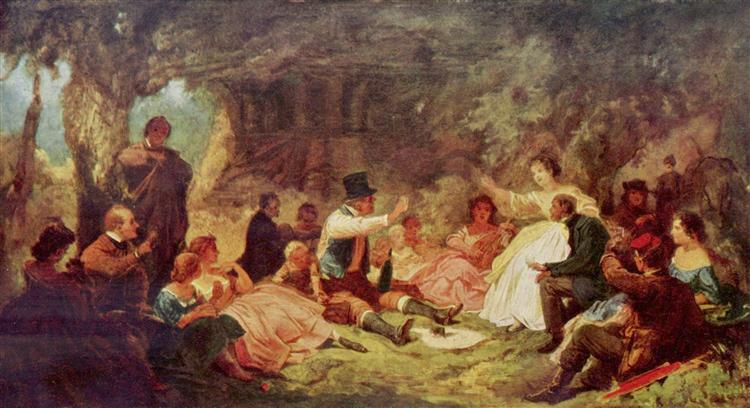 Spitzweg’s Dejeuner sur l’herbe, Das Picknick, aka Luncheon on the Grass, is a happy middle-class person in the country. They sit, relaxing and enjoying each other’s company. The central figure, a portly man, toasts a woman in white, perhaps a bride. The company rises...
Spitzweg’s Dejeuner sur l’herbe, Das Picknick, aka Luncheon on the Grass, is a happy middle-class person in the country. They sit, relaxing and enjoying each other’s company. The central figure, a portly man, toasts a woman in white, perhaps a bride. The company rises...
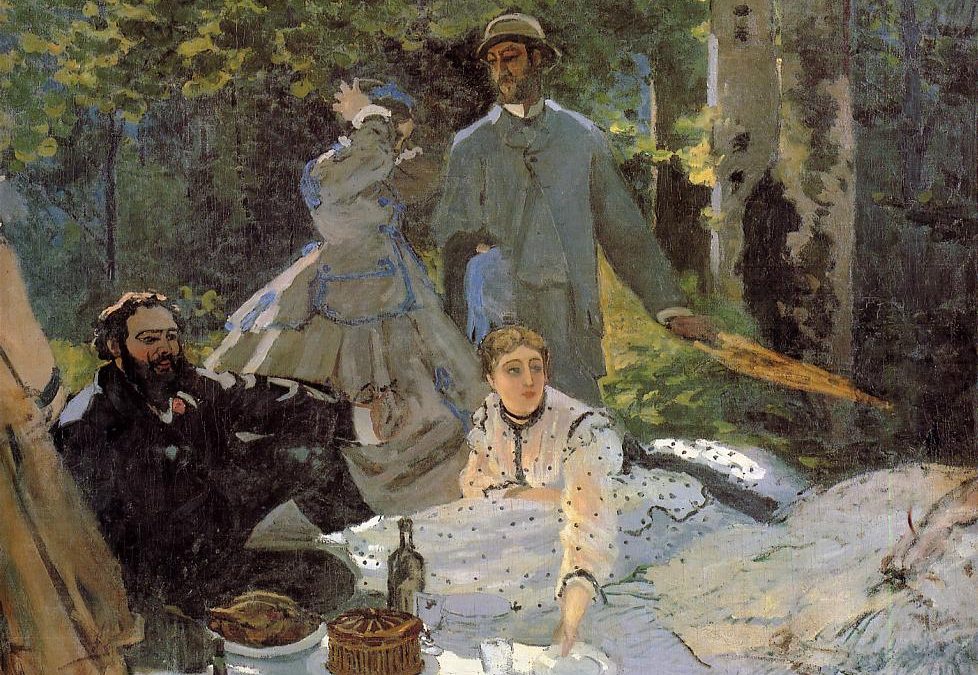 Monet responded to Manet’s Le déjeuner sur l’herbe his painting in 1865 but left it uncompleted. Unlike Manet, who painted in the studio, Monet painted outdoors. This presented logistical problems because his picnic was to be monumental, approximately 15 x 20...
Monet responded to Manet’s Le déjeuner sur l’herbe his painting in 1865 but left it uncompleted. Unlike Manet, who painted in the studio, Monet painted outdoors. This presented logistical problems because his picnic was to be monumental, approximately 15 x 20...
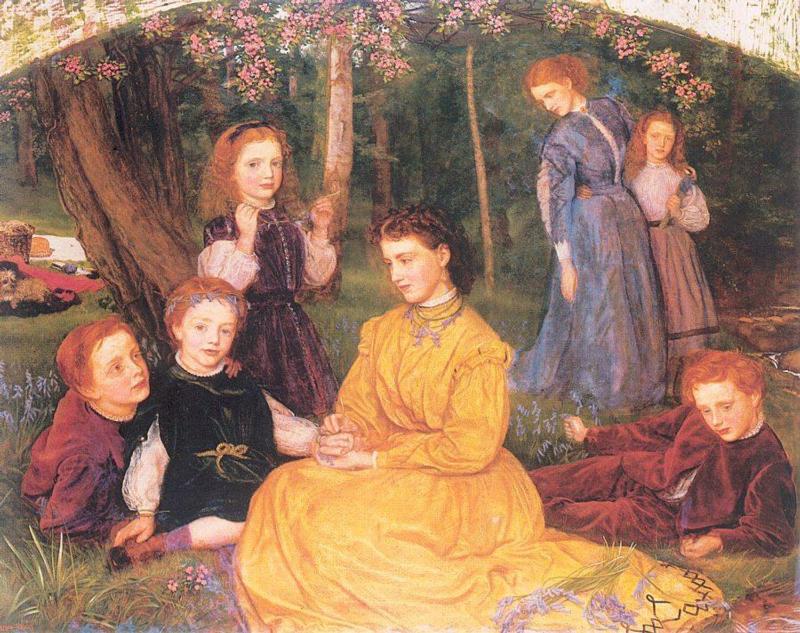 Hughes used a picnic as a theme for a family portrait of the Pattinson family. The title he gave was A Birthday Picnic – Portraits of the children of William and Anne Pattinson of Felling, near Gateshead. A red table with food in the left background, but it is...
Hughes used a picnic as a theme for a family portrait of the Pattinson family. The title he gave was A Birthday Picnic – Portraits of the children of William and Anne Pattinson of Felling, near Gateshead. A red table with food in the left background, but it is...
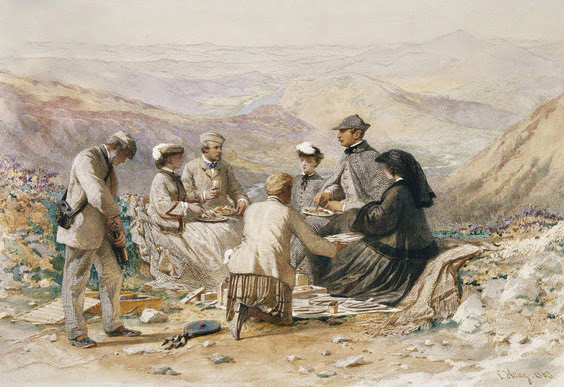 Haag’s Luncheon at Cairn Lochan shows the royal family picnicking in Scotland. Painted in 1868, Haag based the scene on an episode in 1861, three months before Prince Albert’s death. Yet, Haag shows the Queen dressed in her habitual black. She is accompanied by Albert...
Haag’s Luncheon at Cairn Lochan shows the royal family picnicking in Scotland. Painted in 1868, Haag based the scene on an episode in 1861, three months before Prince Albert’s death. Yet, Haag shows the Queen dressed in her habitual black. She is accompanied by Albert...
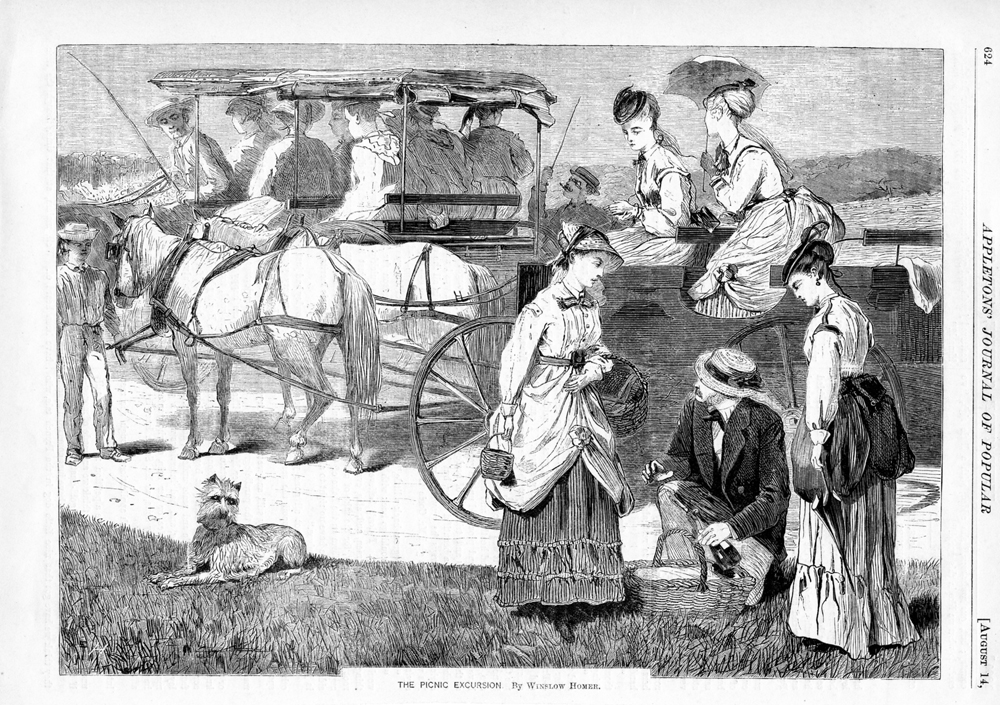 When Appleton’s Journal commissioned Winslow Homer to illustrate a short essay, “Picnic Excursions,” it’s unclear if he ever read the text, partly because he titled his composition The Picnic Excursion. Perhaps he considered that picnics are...
When Appleton’s Journal commissioned Winslow Homer to illustrate a short essay, “Picnic Excursions,” it’s unclear if he ever read the text, partly because he titled his composition The Picnic Excursion. Perhaps he considered that picnics are...
 James Jacques Joseph Tissot’s La Partie carrée, aka The Foursome, is more sexually suggestive than the English title indicates. The French title Partie Carrée suggests a sexual tryst and alludes to Édouard Manet’s The Luncheon on the Grass (1863)....
James Jacques Joseph Tissot’s La Partie carrée, aka The Foursome, is more sexually suggestive than the English title indicates. The French title Partie Carrée suggests a sexual tryst and alludes to Édouard Manet’s The Luncheon on the Grass (1863)....
 For London: A Pilgrimage, Doré and Jerrold visited Epsom in 1869 to experience the tumult of Derby-Day— the race, the carnival atmosphere, and picnic luncheons on carriage tops. Unlike William Powell Frith’s The Derby Day, Dore and Jerrold were keen to exploit...
For London: A Pilgrimage, Doré and Jerrold visited Epsom in 1869 to experience the tumult of Derby-Day— the race, the carnival atmosphere, and picnic luncheons on carriage tops. Unlike William Powell Frith’s The Derby Day, Dore and Jerrold were keen to exploit...
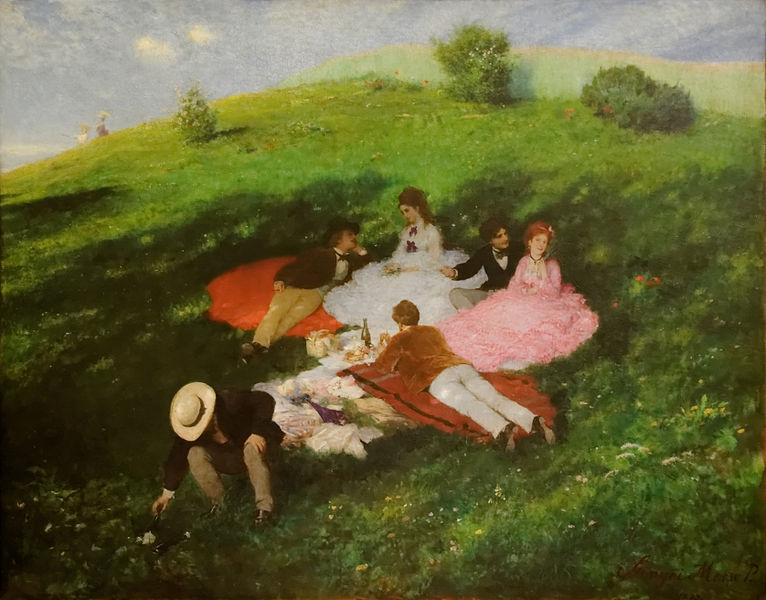 Majális is Merse’s staid Hungarian middle-class-style homage to Manet’s Dejeuner sur L’herbe. Though this is obviously a picnic, the title means “Mayfair.” Merse does not use the Hungarian loanword piknik or the expression jó s Majális zórakozás, a pleasant amusement...
Majális is Merse’s staid Hungarian middle-class-style homage to Manet’s Dejeuner sur L’herbe. Though this is obviously a picnic, the title means “Mayfair.” Merse does not use the Hungarian loanword piknik or the expression jó s Majális zórakozás, a pleasant amusement...
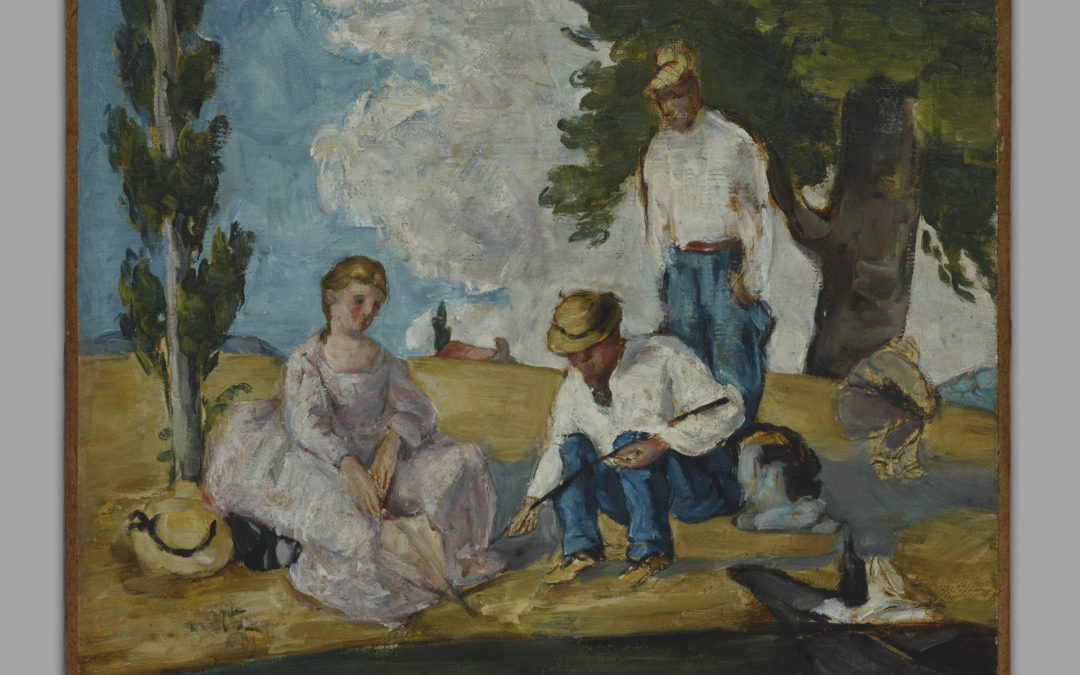 Cezanne’s Picnic on a Riverbank (1873-1874) is a partie de campagne that may be a vague allusion to Manet’s Luncheon on the Grass (1863) A trio of two men and a woman congregate on the riverbank. The woman sits alone, hat off, her parasol between her legs....
Cezanne’s Picnic on a Riverbank (1873-1874) is a partie de campagne that may be a vague allusion to Manet’s Luncheon on the Grass (1863) A trio of two men and a woman congregate on the riverbank. The woman sits alone, hat off, her parasol between her legs....
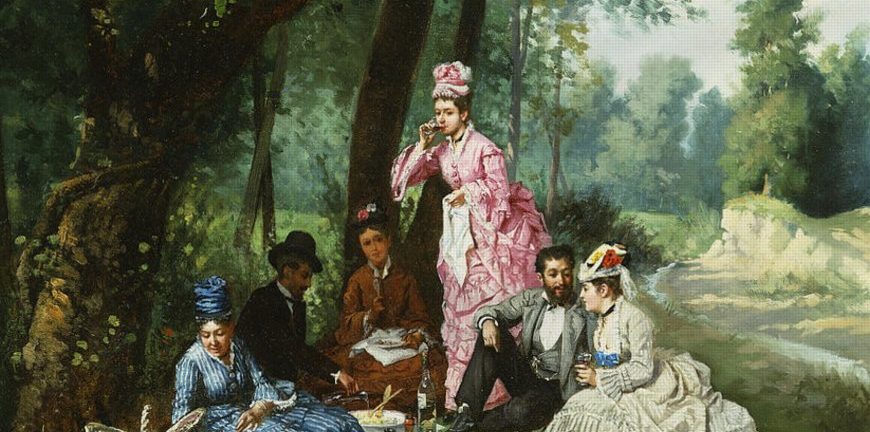 Garcia Mencia’s middle-class picnickers have out to the country for afternoon lunch. They are well provisioned. Compare Garica Mencía’s La merienda with Pál Szinyei Merse’s Majális (1873). See Antonio Garcia Mencía. La Merienda (1874). Oil on...
Garcia Mencia’s middle-class picnickers have out to the country for afternoon lunch. They are well provisioned. Compare Garica Mencía’s La merienda with Pál Szinyei Merse’s Majális (1873). See Antonio Garcia Mencía. La Merienda (1874). Oil on...











